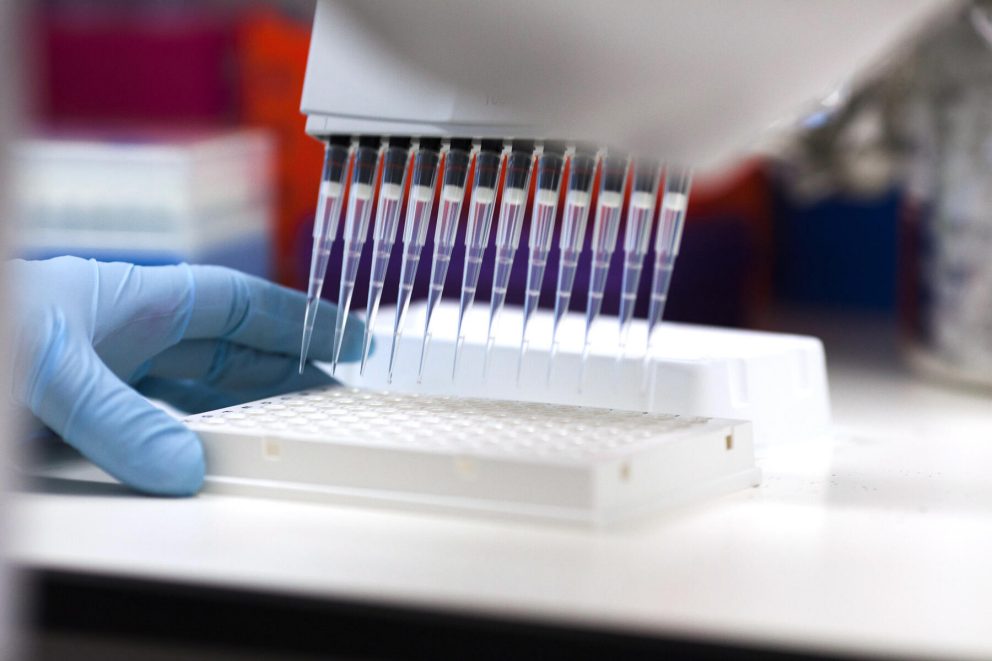- 3D cell culture technology may allow researchers to rapidly test a variety of treatments directly on patient biopsies
- Teams will evaluate technology as clinical tool for personalized cancer therapy
- Collaboration will aim to obtain CAP/CLIA certification of organoid-based assay, followed by clinical studies in multiple indications
The University of Texas MD Anderson Cancer Center and TOPPAN Holdings today announced a strategic alliance to advance the development of TOPPAN Holdings' invivoid™ 3D cell culture technology as a tool for personalized cancer treatments and drug screening efforts.
This collaboration brings together TOPPAN Holdings' innovative organoid culture technology and MD Anderson's clinical and research expertise to accelerate the development of new clinical tools to better inform physicians about expected outcomes from a given therapy.
Under the agreement, researchers from TOPPAN Holdings and MD Anderson will work collaboratively toward obtaining College of American Pathologists (CAP)/Clinical Laboratory Improvement Amendments (CLIA) certification of an organoid-based assay that can be used to evaluate the effectiveness of various cancer therapies on patient-derived samples. The collaborators also will work together on clinical validation studies to evaluate the utility of this tool across several cancer types.
"Organoids allow us to model the three-dimensional complexity of human cancers in the lab, thus allowing us to engineer a powerful translational engine - one that could not only predict how patients will respond to therapy before treatment begins but also could help to reimagine how we discover and validate next-generation therapies," said Donna Hansel, M.D., Ph.D., division head of Pathology and Laboratory Medicine at MD Anderson. "Through this collaboration, we hope to make meaningful progress in modeling cancer biology for therapeutic innovation."
TOPPAN Holdings' proprietary 3D cell culture technology is capable of rapidly establishing organoid models directly from patient biopsies or other tissues. If validated clinically, researchers may be able to test a variety of potential treatments in the laboratory to understandwhich approach may work best for the patient. This could help to improve treatment outcomes as well as avoid unnecessary treatments that may not be effective.
"The strategic alliance with MD Anderson paves a promising path toward personalized cancer medicine," said Hiroshi Asada, head of the Business Innovation Center at TOPPAN Holdings. "We believe our proprietary invivoid™ 3D cell culture technology, by enabling the rapid establishment of organoid models directly from patient biopsies, has strong potential to help identify more effective treatment options and reduce the likelihood of unnecessary therapies. Through collaboration on CAP/CLIA certification and clinical validation, we aim to bring this innovation closer to real-world patient care and contribute meaningfully to the advancement of cancer medicine."
Initial work will build upon preclinical research previously conducted under a collaboration with TOPPAN Holdings and MD Anderson researchers. Upon obtaining CAP/CLIA certification, observational clinical studies will be designed with the goal of evaluating how the organoid assay aligns with clinical outcomes. With initial success in those efforts, the research teams may work toward prospective clinical studies, in which the assay could be used to guide treatment approaches.
TOPPAN Holdings will provide funding of approximately $10 million over five years to advance joint research activities and support efforts to obtain CAP/CLIA certification.







